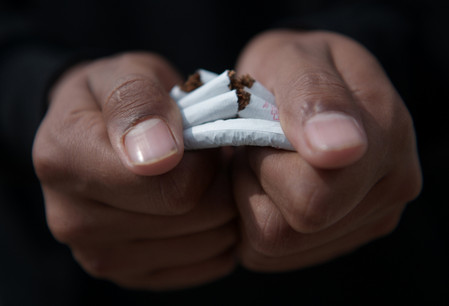New -Delhi, June 15 (IANS). Just 15 years ago, Bhutan, who took a historic step, declared himself the first country in the world on June 15, 2010, which imposed a complete ban on tobacco. Although Bhutan imposed a partial ban on the sale of tobacco itself in 2004, the new “tobacco control law” led to a new level in 2010, including a widespread ban on tobacco cultivation, production, distribution and sale. This decision by Bhutan was not sudden, but it was the result of more than a decade. The National Assembly of Bhutan decided on December 17, 2004, to ban any kind of tobacco sale around the country, making it the first nation in the world to take such a step. Thereafter, smoking was also banned in public places by February 2005. The ban on tobacco in Bhutan is not only inspired by public health issue, but also the deep roots in Buddhism, where tobacco is considered a ‘sin’. This ban was therefore a symbol of health benefits as well as religious-cultural commitment. In 2004, the World Health Organization confirmed the ‘Smoking Control Framework Convention of the United Nations’ by Bhutan, further strengthened the policy and also determined its relevance at international level. After the sale ban in December 2004, from 2005 to 2010, Bhutan gradually strengthened its rules. The law not only banned tobacco cultivation, production, distribution and sale, but also recorded the provision of the government to stop tobacco, reflecting the appearance of this initiative. However, some unexpected results of this strict ban also came out. Smuggling has increased rapidly, especially a black tobacco market from India has developed. In 2010, the government imposed a provision of strict fine and punishment, including a imprisonment to a few years, but despite this, the impact of the ban and the controversy continued. Several legal amendments took place in 2012 after a few protests. The limit of the volume of tobacco brought for individual consumption was determined, and the punishment was relatively relieved, reflecting some flexibility for public feelings of the government. The smuggling was temporarily affected by the seal of the Kovid-19 closure and the Indo-Bhutan border in 2020. During this crisis, the government limited the sales of tobacco in local state-free outlets to reduce smuggling and reduce the possibility of infection. However, it has been said that this recovery is ‘temporary’ and the ban on tobacco cultivation, production and comprehensive distribution continues. This journey of Bhutan’s complete ban on tobacco was an ambitious but challenging initiative, which serves as a case study for other countries in the world. Although Bhutan gave preference to health and religious-cultural values, the social and economic influence of this policy was also an ongoing challenge. -Ians DSC/Acade
When Bhutan became the world’s first tobacco -free country, the full story of the historical prohibition knew
